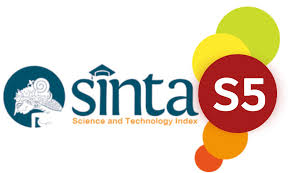English Teachers’ TPACK Level, Factors, and the Impacts in Vocational High School
DOI:
https://doi.org/10.37253/iallteach.v4i2.6725Keywords:
English teaching, Factors, Impacts, TPACKAbstract
This study is aimed to investigate English teachers’ TPACK level and explore its impact on teaching English to Vocational high school students in Garut. In this mixed-method study, questionnaires, interviews, and observation were used as the instruments for collecting the data. The participants of this study were 50 vocational high school English teachers in Garut. After collecting the data from the questionnaire, this study showed various results for each domain. On average, more than 60% of the participants had a high level of TPACK. And the rest of them had an adequate and low level of TPACK. In addition, based on the interview, factors that influenced the differences in TPACK level among the participants were divided into three aspects: technology, pedagogy, and content knowledge. Factors that influence the technology aspects were facilities, technology mastery, and willingness and curiosity. Meanwhile, factors of pedagogy are influenced by teaching experience and strategy, training, and certification from the government. Whereas, factors of content knowledge are caused by educational background, age, and English knowledge mastery. Thus, English teachers with TPACK levels impact their teaching practices in vocational high schools. Most of them applied technology in the classroom, such as using laptops, projectors, audio and video file, PowerPoint, and digital book. Besides, they also used many teaching strategies with English knowledge mastery in teaching so that their students were more enthusiastic about learning English. This study is expected to benefit the teachers as they derive relevant details for their development and professionalism
Downloads
References
[2]. Bygate, M. (2001). Speaking. In Carter, R. and Nunan, D (eds). The cambridge guide to teaching English to speakers of other languages. Cambridge: Cambridge University.
[3]. Cohen, K., Manion, L., & Morrison, K. (2007). Research Methods in Education (sixth ed.). United States of America: Routledge.
[4]. Destiani, I. (2020). Exploring English TPACK level and the impacts on strategies of assessments practice. IEEE. Universitas Malang.
[5]. Jang, S. J. (2010). Integrating the interactive whiteboard and peer coaching to develop the TPACK of secondary science teachers. Computers & Education, 55(4), 1744-1751.
[6]. Liu, H., Liu, S, Li, Y, Wen, T,. and Yu Y. (2014). TPACK: A new dimension of EFL teachers' PCK. Journal of education and human development, 3(2), 681-693.
[7]. Mahdum. (2015). Technological pedagogical content knowledge (TPACK) of English teachers in Pekanbaru, Riau, Indonesia. Mediterranean Journal of Social Studies, 6(5), 168-176.
[8]. Masrifah, M., Setiawan, A., Setiawan, W,. & Sinaga, P. (2018). Profile of senior high school in-service physics teachers' technological pedagogical and content knowledge (TPACK). Journal of Physics: Conference series. Maluku: IOP, 1-7.
[9]. Mishra, P. &. (2006). Technological pedagogical content knowledge: A framework for integrating technology in teacher knowledge. Teachers college records, 108(6), 1017-1054.
[10]. Nazari, Nafissi, Estaji & Maranji (2019). Evaluating novice and experienced EFL teachers’ perceived TPACK for their professional development. Cogent Education. 6(1), 1-26.
[11]. Ottenbreit, Glazewski, Newby, & Ertmer (2010). Teacher value beliefs associated with using technology: Addressing professional and student needs. Computers and Education. 55(3), 1321-1335.
[12]. Ringotama, R. R. (2020) Pre-service teachers’ perception and vision about TPACK and its Implementation. A Journal of Culture, English Language, Teaching & Literature. Universitas Sebelas Maret, Surakarta. 20 (1), 142-165.
[13]. Schmidt, D. A, Baran, E.., Thompson, A. D., Mishra, P., Koehler, M. J., & Shin, T. S. (2009). Technological pedagogical content knowledge (TPACK): the development and validation of an assessment instrument for pre-service teachers. Journal of Research on Technology in Education, 123-149.
[14]. Shulman, L. S. (1986). Those who understand: knowledge growth in teaching. Educational researcher, 15(2), 4-14.
[15]. Szeto, Ceng & Hong (2016) Learning with Social Media: How do Preservice Teachers Integrate YouTube and Social Media in Teaching?. The Asia-Pacific Education Researcher. 25, 35-44.
[16]. Windschitl, M. (2004). What types of knowledge do teachers use to engage learners in doing science? . Board of science education Washington DC.




.png)






